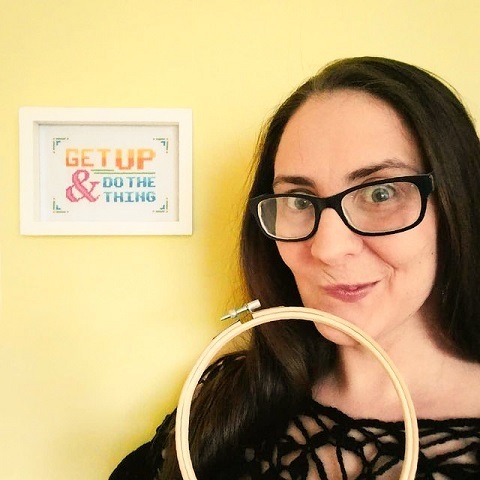This drives me nuts when I see it done wrong, but it’s actually kind of complicated because English is orthographically deranged.
Lead (/liːd/) [verb, present tense]: to guide, etc. I asked them to lead us in a rousing revolutionary anthem.
Led (/led/) [verb, past tense]: as above, but past tense. Later, we were led to a blank concrete wall.
Lead (/led/) [noun]: A soft, poisonous metal. Bullets are most often made of lead.
Just to make it confusing…
Lead (/liːd/) [noun]: kind of like “leader”. Officer Johnson was our lead on this operation. (Note: it also means “leash”; e.g., I clipped the lead to Bowser’s collar.)
Lede (/liːd/) [noun]: The first bit of a news story, often the first sentence. I didn’t read the full article, but the lede suggested the protesters were decimated by police.
Leeds [proper noun]: A Town in England. Leeds is the worst place to stage peaceful protests.
And finally…
LED (ell ee dee) [noun, abbr.]: Abbreviation for light-emitting diode. For the love of any gods you might believe in, fucking capitalize it. Electronics hobbyists I’m looking in your direction.
More Examples
-
Wrong: I was lead into the woods by a stranger.
-
Right: I was led into the woods by a stranger.
-
Wrong: The lead in an ad about cheap bulk led lead me to lede my leed dog to Leides on her led lede.
-
Right: The lede in an ad about cheap bulk lead led me to lead my lead dog to Leeds on her LED lead.
(The last example is stupidly confusing, but it was fun to write.)
🤓☝
You are technically correct, the best kind of correct.
Very common in UK / Australia but almost never heard in the US (we usually say cables instead).
… but you’re aware that the majority of the world is not in fact in the US.
Well that can’t be true, everything I see when I look around is in the US.
deleted by creator
Common among the electronics hobbyists that OP mentioned as well, leads are what you call the connections to discrete components or IC’s.
Yes indeed, and in that case, also in the US.
Ledes: leads led the lead leads to LEDs in Leeds.
Pronounced:
the leeds: leeds led the led leeds to leds in leeds
Translation:
multiple headlines said he followed his bosses with soft metal wires to connect some energy efficient lights in the worst place to stage a protest.
Don’t forget that “lead” rhymes with “read” and “lead” rhymes with “read”, but “lead” doesn’t rhyme with “read” and “lead” doesn’t rhyme with “read”.
Thank you for making the community 100% more literate with this post
One of my biggest nitpicks is lie vs lay
Lie Lay I usually lie on the bed. Lay down your weapon. Yesterday, I lay on the bed. He laid his weapon down. “lie” has two meanings too…
“But Dave lied when he said he lay on his bed.”
Same word, different meanings, different tenses
It too takes two to tango.
Where does this leave Led Zeppelin? Am I guiding said Zeppelin somewhere?
IIRC someone told them that their band would fall and crash like a Lead (the metal) Balloon. They changed it from Lead to Led and had their name
Bonus story: Daft Punk got their name in a similar manner. A critic described their music as “dafty punk”
You’re leading a zeppelin full of lead.
Your first example isn’t actually using the present tense, it is using the infinitive form “to lead”.
Your example for lede should reference burying the lede as that’s most often when I see people using it wrong
Justice for Leeds!
(It’s a city not a town)
Leeds Leeds Leeds!
I think the main source of confusion in this actually comes down to the conjugation of read.
Read and lead should be conjugated the same, but they aren’t. Add to that all the additional homophones and homonyms and yeah. I wouldn’t jump on anyone for screwing this up.
Now do one about theiry’re please.
In French there is a similar word: ver/vers/vair/verre, all of these are pronounced the same
Ver(s): worm(s) Vers: it can either means “towards”, “around” or if it’s use as a noun it means a “verse” in poetry. Verre: glass Vair : a fur used in medieval time.
Fun fact: in the original Cinderella story she was wearing fur slippers (vair). However with time and oral transmission of the story the fur become glass (vair -> Verre)
This is why I love English. In Spanish every use case has a different word, eliminating the confusion. Reminds me of the phrase “John while James had had had…”
James while John had had had had had had had had had had had a better effect on the teacher
I think I had a stroke reading that
It’s a good example of why punctuation is helpful.
James, while John had had “had had”, had had “had”; “had had” had had a better effect on the teacher
I’m a native English speaker and I have no idea what this sentence says.
A teacher has asked a question for which either “had” or “had had” is the correct answer. James answered “had”, while John answered “had had”. “Had had” is the correct answer, and so the teacher responds better to John’s answer.
It is intentionally written to be confusing though, so it’s not surprising if someone struggles to parse it
Thank you
Or for the audio version, it is read like lead and not read like lead.
deleted by creator
This one’s tricky. The comma splice in the first sentence is jarring, but recently people seem to absolutely love them despite being wrong. And let’s not linger too long on the ‘damn’ which should be ‘damned’.
I’m not saying it’s imperfect: I’m saying if you miss what I find obvious, maybe their miss of what you find obvious could be easier to understand.
For me, aside from ‘emails’, and the ‘nounification’ of nouns like ‘ask’, ‘spend’, and ‘verbification’ of ‘effort’ – effort the ask to reduce the spend, Dave – I have a general worry that we’re marching towards Idiocracy because LaNgUaGeEvOlVeS and it seems a Parisian-style language police is strongly indicated.
- Wrong: I was lead into the woods by a stranger.
Double-check with proper English. Get ready for learning.
But led/lead isn’t the big issue, is it? We have people who learned about words like ‘traffic’ and ‘mail’ and still put an s on the end of ‘email’ like an absolute git.
Let’s tackle led/lead after we are done spiritually crushing the ‘emails’ idiots, and those who confuse that/which/whom/who, and the if/whether idiots. Effect/affect and there/their/they’re are excellent early goals to achieve too before we go for the more nuanced stuff.










